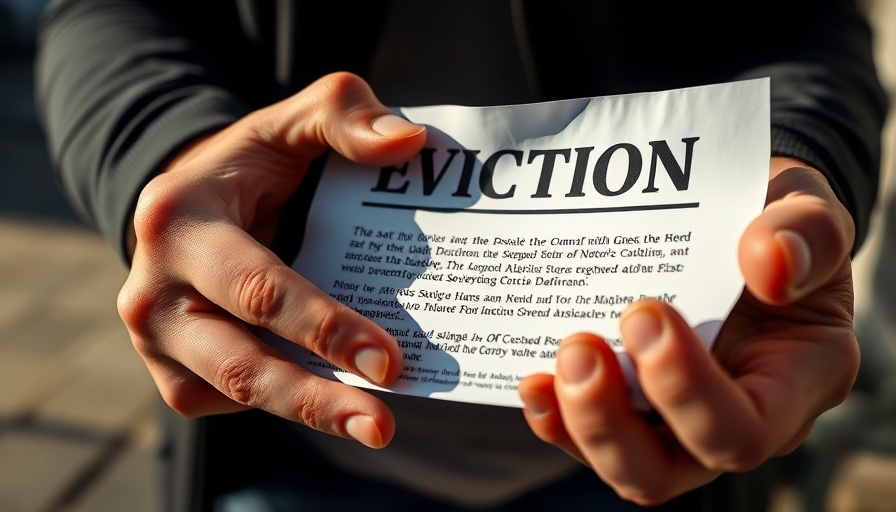
California's Decision on Renters: A Double-Edged Sword
In a controversial move, California lawmakers have voted to dismantle key protections that were intended to provide relief for renters facing eviction amid the ongoing housing crisis. This decision has elicited strong emotions from both sides—landlords celebrating for the newfound freedom in managing their properties and tenants left feeling abandoned by a system they believed would protect them. As the cost of living continues to rise, the implications of this vote are reverberating across communities, particularly in areas like Bakersfield.
Understanding the Housing Crisis
California's housing crisis has been years in the making, fueled by increasing rent prices that have outstripped wage growth in many communities. This disparity has led to an influx in evictions, which can leave families without stable housing and disrupt communities. With thousands of renters relying on earlier protections, many now face the harsh reality of eviction either due to increased rent or stricter lease terms.
Reactions from the Community
The community of Bakersfield is a microcosm of the larger state-wide conflict. Local tenant advocacy groups have voiced their disappointment with the vote, arguing that landlords are being prioritized over families who are struggling to make ends meet. "This vote shows a deep neglect for anyone trying to make a better life for themselves and their families," said Maria, a local activist and renter. Meanwhile, many landlords argue that the protections hampered their ability to maintain properties and resulted in financial strain. For them, this recent vote has been seen as a long-overdue correction.
Future Implications for Renters in Bakersfield
The removal of eviction protections could have serious future implications for renters in Bakersfield. With the local economy still braving the post-pandemic waves, many families are left questioning their housing security. Experts warn that this legislative change may lead to an increase in homelessness as renters will find themselves with fewer resources and options. The situation may force some to choose between rent and essentials like food or healthcare, further exacerbating the health crises already reported in low-income communities.
Counterarguments: Weighing Perspectives
While tenants face immense challenges, it’s essential to consider the landlords’ perspective in this debate. Many property owners suffered significant financial losses during the pandemic, with unpaid rent mounting and properties falling into disrepair. By reducing eviction protections, some landlords feel they can regain control of their financial situations. However, the debate remains heated, with many calling for a more balanced approach that protects both renter rights and landlord investments.
What Should Renters Do Now?
In light of these changes, renters in Bakersfield should stay informed about their rights and resources available to them. Connecting with local housing advocacy groups can provide critical information regarding tenant protections and assistance programs. It's also advisable for renters to communicate openly with landlords about their situations. Sometimes, a good discussion can lead to better solutions than eviction.
Potential Alternatives to Eviction
Rather than resorting to eviction, community leaders are encouraging landlords and tenants to explore mediation services. These options may include payment plans or temporary rent reductions to help stabilize housing situations. By fostering an environment of dialogue, both parties may find a path that minimizes disruptions.
Conclusion: A Call for Action
As we navigate these turbulent times in the housing landscape, it’s crucial for Bakersfield residents to take action. Participation in local forums and community meetings can send a clear message to lawmakers about the direction we want to take in housing policy. Advocating for fair housing practices is not just a tenant’s concern—it's a community concern.
We encourage readers to reach out to local officials, express their thoughts on this critical issue, and become involved in shaping their housing future.
 Add Row
Add Row  Add
Add 



Write A Comment